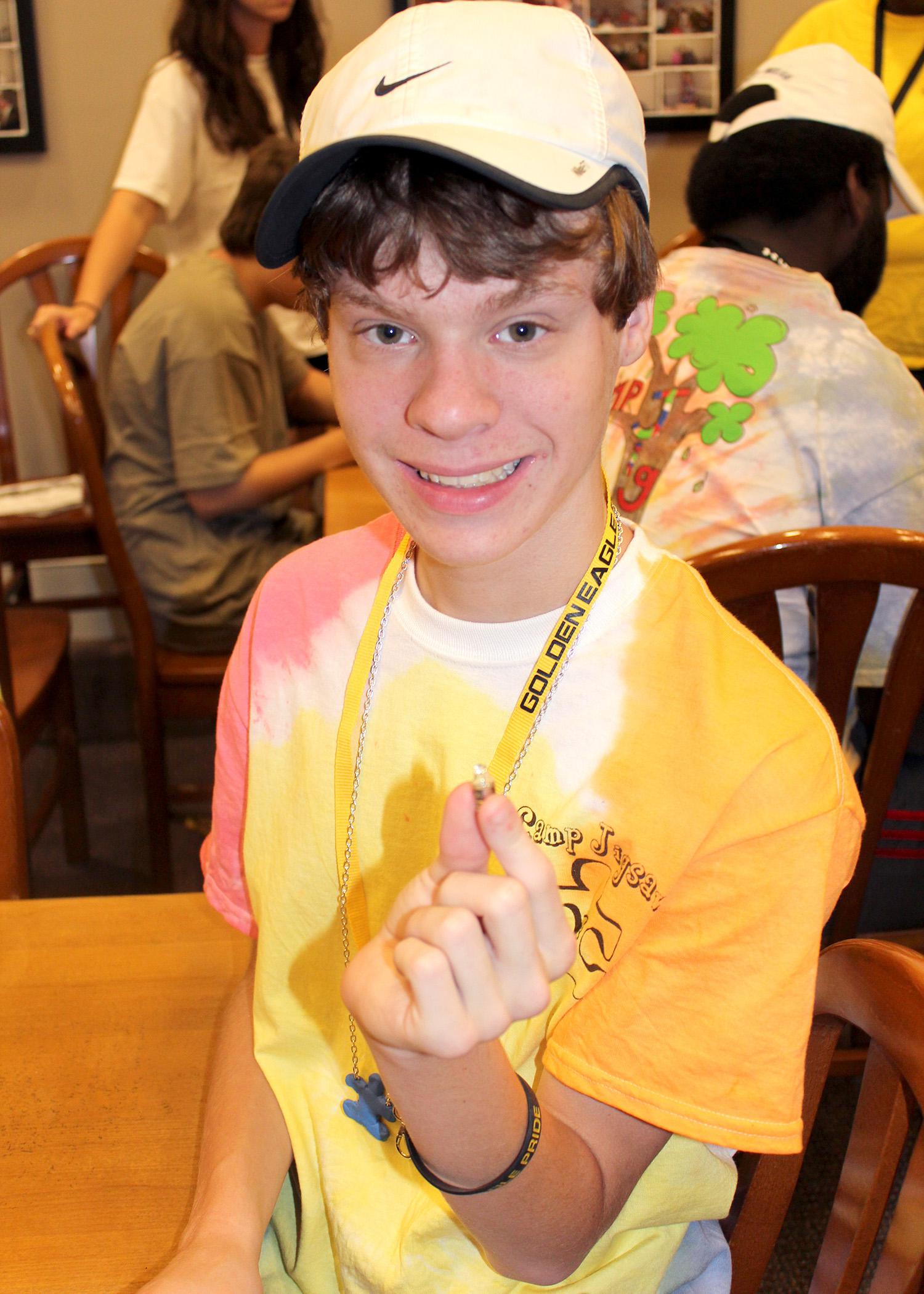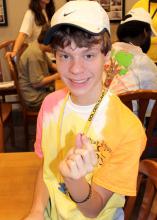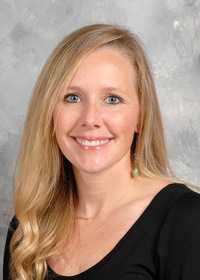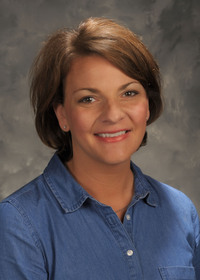Information Possibly Outdated
The information presented on this page was originally released on July 2, 2013. It may not be outdated, but please search our site for more current information. If you plan to quote or reference this information in a publication, please check with the Extension specialist or author before proceeding.
Campers on the autism spectrum build robots
MISSISSIPPI STATE – One small lightbulb can make a big difference.
Oohs, ahs and wows filled a room at Mississippi State University’s Montgomery Hall on Friday when a group of teen campers finished their first experiment in building circuits. A piece of foil, a battery and a lightbulb the size of a marble launched a lesson on energy and ultimately set the campers to building their own robots.
Mariah Smith, a technology specialist with the MSU Extension Service Center for Technology Outreach, helped campers and counselors at Camp Jigsaw transform simple materials into one-of-a-kind “jitterbug” robots. Building robots is a familiar activity for Smith, but the campers represent a new group for her to serve: young people on the autism spectrum.
“We’ve noticed an increasing number of 4-H’ers who are on the spectrum, and we wanted to learn the best instructional methods and ways of interacting with this unique group of kids,” Smith said. “We had the idea that MSU experts were the perfect resource for helping us help our 4-H’ers.”
April Heiselt, director of the Center for the Advancement of Service-Learning Excellence, put Smith in touch with Sandy Devlin, professor of special education in MSU’s Department of Curriculum, Instruction, and Special Education. She is also the director of Camp Jigsaw, which serves young people ages 12 to 21 with autism spectrum disorders.
For the past four summers, the week-long camp has provided a place for these young people to develop social skills and interact in a supportive environment with peers who face the same challenges. It also gives undergraduate and graduate students service hours and practical experience during the summer, when school-based experiences are not available.
“Typical” peers, or young people who do not have autism spectrum disorders, volunteer their time and friendship to provide positive reinforcement and support as the campers push the boundaries of their comfort zones.
“We are excited to begin this partnership with the Extension Service, because we encourage families with children on the spectrum to get involved in small group activities to help their kids increase their social skills,” Devlin said. “We know 4-H is often used by families with children on the spectrum because they have a long history of supporting and encouraging children to grow and be the best they can be.”
Devlin said she invited Smith to Camp Jigsaw so Smith could see teaching and interaction strategies for special needs children in practice and the campers could finish their week with an exciting project they built themselves.
Building the robots required following a series of directions broken down into individual steps. The instructions were reinforced by counselors working with the campers individually.
“Some of these kids are truly gifted, and if we can get their social skills and behavior under control, they can succeed,” Devlin said. “Camp Jigsaw provides them the opportunity to show everyone what they can do and to learn new skills.”
Building robots was not the only new skill some of the campers learned at camp.
“Whatever the task, they need someone to support them through to the end of the experience and show them the rewards of persistence,” Devlin said. “Finishing this robot will be a huge accomplishment, and each time they finish something, persisting becomes easier.”
Devlin and Smith plan to create a robotics curriculum for 4-H agents to use specifically with young people on the autism spectrum. Devlin and her students will train agents to use effective, research-based teaching practices shown to provide the support and structure needed for these children to be successful, both in the robotics project, and in developing appropriate social skills.





